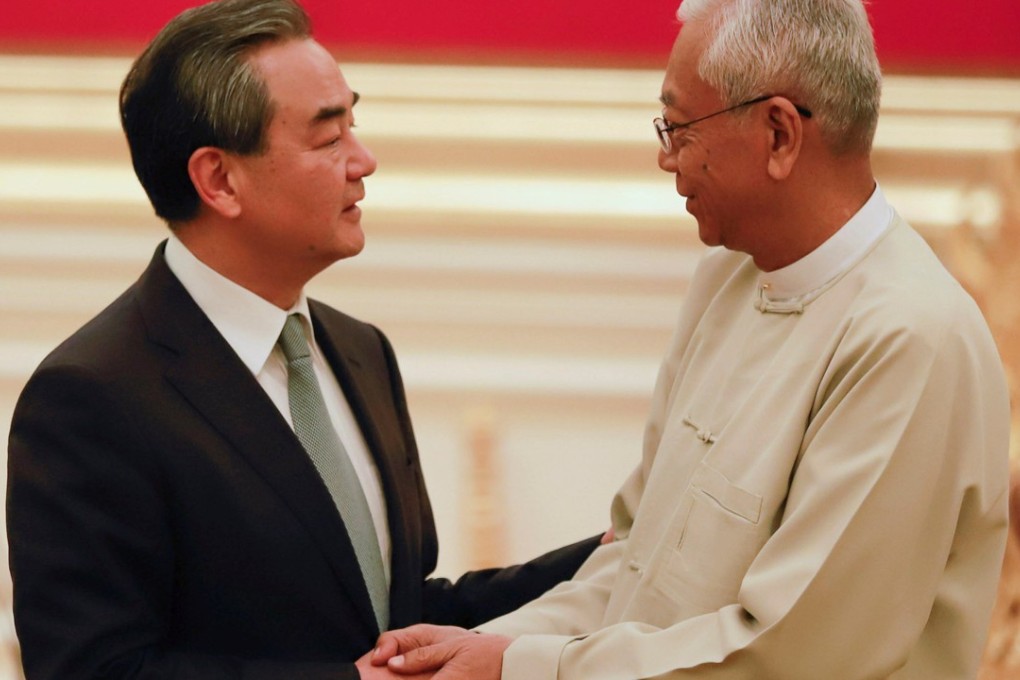China lays out three-point plan to ease Rohingya crisis
Beijing on more proactive tack in the region with offer to Bangladesh and Myanmar, observers say

China has offered to help Bangladesh and Myanmar resolve the Rohingya crisis, a move Chinese analysts said reflected Beijing’s more proactive and conciliatory tack on regional affairs.
Arriving in Myanmar’s capital Naypyidaw on Sunday after a stop in Bangladesh, Chinese Foreign Minister Wang Yi also said the international community must help fight poverty and promote development in Myanmar’s Rakhine State.
More than 600,000 Rohingya Muslims have fled to Bangladesh since late August, driven out by a military clearance operation in Rakhine which the United Nations has said amounts to ethnic cleansing.

Buddhist-majority Myanmar has faced growing international anger over its treatment of the Rohingya – amid widespread reports of murders and rapes committed by the armed forces – but China has helped shield the country from censure.
After meetings on Sunday with Myanmar’s leader Aung San Suu Kyi, President Htin Kyaw and military chief Min Aung Hlaing, Wang outlined a “three-stage plan” to address the Rohingya crisis.